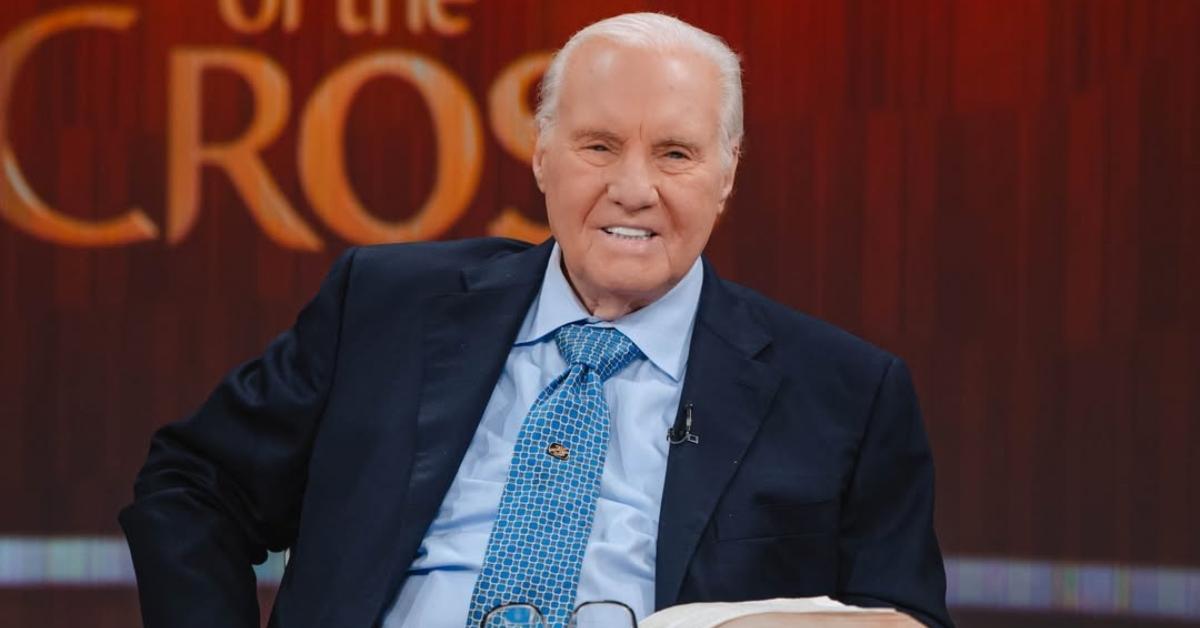Jimmy Swaggart Dies at 90 After a Life of Evangelism Fame Scandal and Redemption
Jimmy Swaggart Leaves Behind a Controversial Legacy of Faith, Fame and Scandal
Jimmy Swaggart, the fiery televangelist who rose from the pinewoods of Louisiana to global prominence, passed away on July 1 at the age of 90. Known for preaching the eternal battle between righteousness and temptation, he lived a life that mirrored the spiritual warfare he so passionately warned against.
Born in Ferriday, a small town in eastern Louisiana, Jimmy Lee Swaggart grew up surrounded by faith, family tension, and music. His father was a part-time preacher and grocer, and his early exposure to church laid the foundation for his lifelong devotion to ministry. He launched his evangelical mission in the 1950s, gradually growing it into a global empire.
By the mid-1980s, Jimmy Swaggart Ministries had a daily reach in more than 140 countries, pulling in hundreds of millions of dollars annually from donations, gospel music sales, and Bible study courses. At his peak, Swaggart’s booming voice, emotional sermons, and music-filled broadcasts captivated millions. He would often start sermons with declarations like, “Satan, you’re in for a whupping!” His stage presence, often described as commanding and emotional, brought his audiences to tears, and sometimes, to their knees.
However, his crusade against sin eventually collided with his own personal downfall. In October 1987, Swaggart was photographed entering a New Orleans motel with a woman later identified as a sex worker. She claimed they had multiple encounters, describing them as pornographic but not involving intercourse. The scandal shook the evangelical world and brought his reputation into question.
In February 1988, Swaggart stood before 7,000 worshippers at his Baton Rouge church and delivered a tearful public apology. With his voice trembling, he turned to his wife, Frances, and confessed, “Oh, I have sinned against you, and I beg your forgiveness.” He then addressed God, asking to be cleansed of every stain. As he spoke, many in the crowd cried and prayed in tongues, deeply moved by his confession.
Ironically, only months earlier, Swaggart had publicly condemned other televangelists for their moral failings. He had harshly criticized Jim Bakker for a sexual scandal and accused Marvin Gorman of adultery, sparking tension within the Assemblies of God denomination. In a twist of fate, Gorman later hired a private investigator who caught Swaggart on camera, leading to the very scandal that ended his affiliation with the church.
After Swaggart returned to the pulpit only three months into a one-year suspension, the Assemblies of God officially defrocked him. Though he expressed regret over parting ways with the organization, he insisted that stepping away from preaching for a full year would have destroyed his television ministry. From then on, he continued independently.
Despite a decline in financial support and public trust, Swaggart never stopped preaching. He kept broadcasting from his Family Worship Center in Baton Rouge, where his son Donnie Swaggart also serves as a minister. Although the crowds were smaller and the donations fewer, his influence endured among a loyal core of followers.
His troubles didn’t end in the 1980s. In October 1991, Swaggart was pulled over in Indio, California, with a sex worker in the car. Reports indicated he tried to stash pornographic magazines under the seat when he noticed a police car following him. This time, his reaction was far less remorseful. Speaking from his church shortly afterward, he bluntly told the audience, “The Lord told me it’s flat none of your business.”
Swaggart's worldly success remained visible for years, reflected in his sprawling Baton Rouge estate, private jet, and luxury cars. Yet his legacy was not without criticism. He often labeled other faiths—including Catholicism, Judaism, Mormonism, and Christian Science—as misguided or false, drawing backlash for his divisive rhetoric.
Still, few denied his power as a speaker. Observers described him as a magnetic presence, someone who could hold an audience like few others in American religious life. Some even likened his preaching style to a skilled courtroom closer—intense, persuasive, and unforgettable.
Swaggart’s core message revolved around the ever-present danger of sin and the redemptive power of Jesus Christ. He interpreted the Bible literally and emphasized spiritual rebirth through the Holy Spirit. His preaching never wavered from the theme that salvation was available, but sin was always lurking.
In his final years, Swaggart remained active at his megachurch campus in Baton Rouge, continuing to lead his congregation and broadcast his sermons worldwide through SonLife Broadcasting Network. He also recorded over 17 million gospel albums, published numerous religious books, and helped shape modern televangelism.
Swaggart is survived by his wife Frances, his son Donnie, and several grandchildren and great-grandchildren. Though he died far from the public spotlight he once dominated, his impact on American evangelicalism remains profound—marked by both spiritual fervor and personal controversy.
The story of Jimmy Swaggart is one of dramatic ascent, public failure, and relentless devotion. His life embodied the contradictions of faith and human frailty, leaving behind a legacy that continues to stir conversation long after his final sermon.





COMMENTS (0)
Sign in to join the conversation
LOGIN TO COMMENT